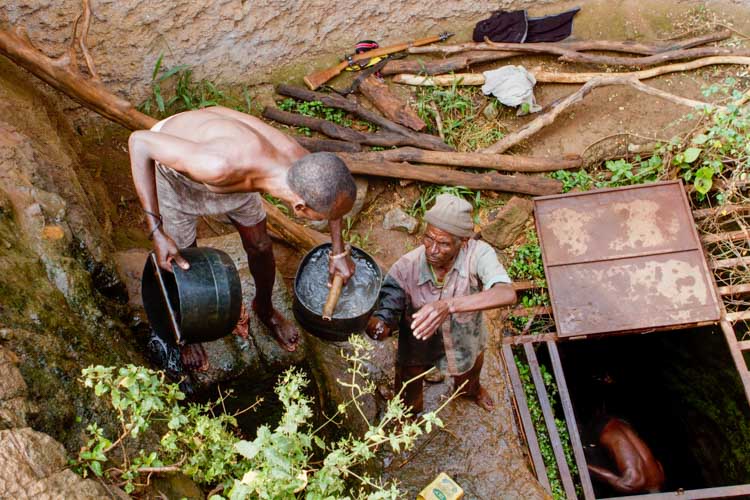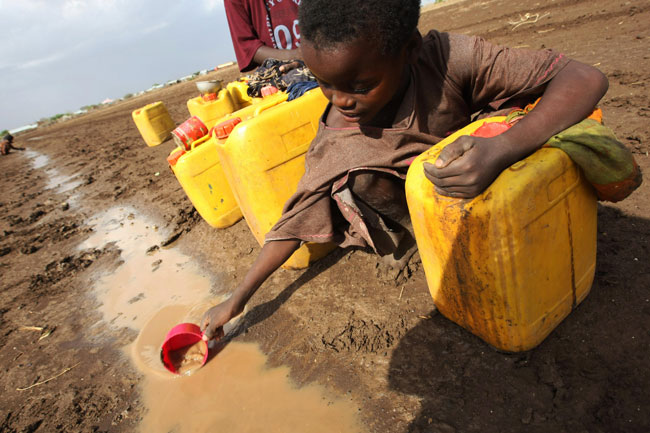World Water Day
Clean drinking water is something we can often take for granted, the ability to turn on the tap without concern for sanitation or water quality is a true luxury. Not all countries around the world have this comfort, in fact, currently there are 785 million people who do not have access to safe drinking water. It’s important that together we address the ways in which we can all help out. This 22 March is World Water Day and this year’s theme for the event focuses on the complex link between water and climate change. Not only is it a great opportunity to learn more about the mission of World Water Day, but also to see what we can do to help reduce our impact on the environment.
Since its inception in 1993, World Water Day has set out to achieve that we collectively come together and do our part to improve global access to fresh water. With a goal to have clean water and sanitation for all by 2030. Currently, worldwide water scarcity affects more than 40% of the world’s population and this percentage is expected to increase if action is not taken.

Kenya: Borana people at a "singing well" @ Ewa Skibinska
It’s important to understand our current situation so, let’s take a closer look at a country in need like Ethiopia. The UN has assessed that just 11% of the population has access to safe drinking water. If we then compare that to other countries in the region such as Somalia and Uganda, conditions are much worse at below 5%. These observations serve to reiterate that positive water and sanitation measures are key if we want to reduce poverty and improve both economic growth, and environmental sustainability.
World Water Day argue that if we can adapt to the effects of climate change, we can improve how we use water and in turn reduce greenhouse gases in the process. By using a more responsible use of water we can help reduce floods, droughts, and will help fight climate change itself. Lastly, by increasing our awareness of climate change, we can help raise public mindfulness about the many ways in which a global safe drinking water can protect health and save lives.
If we first take the time to learn, we can then share that knowledge and act together for a healthier and safer world.
Here are some things you can do to act this World Water Day:
Organise an event
The type of event is completely up to you whether you host a film screening, a trivia night, host an exhibition; a fun run, a march or group tree planting session. So long as you’re spreading the message about our intimate link between water and global health. There are an abundance of resources at worldwaterday.org to help raise awareness of the statistics of our current water crisis.
Use social media for good
Share a post on your social media feed (there are pre-designed posts you can download directly from worldwaterday.org) to let your community know that everyone has a role to play and every little bit helps. Believe it or not, but every person has a level of influence, and with social media, rallying your friends and family to make a difference is very easy.
Be smart with water
Be the best advocator possible by avoiding bottled water, turning the tap off when brushing your teeth and taking shorter showers. You can also contact your local council to urge them to ban bottled water at municipal facilities and events.
Put pressure on your local policy makers
Climate policy makers may need a little nudge from you and your community to put water (and climate change) at the heart of its action plans for the future. Why not send them a letter or email to let them know what matter to you.
Donate!

Lack of clean dringing water is one of the alarming problems in many less developed regions of the world
There are many organisations dedicated to ending the water crisis (such as UNICEF, World Health Organisation and Water.org.) These associations are committed to finding long term solutions to help communities worldwide. By making a one time or ongoing donation you will be making a difference by helping contribute to better safe drinking water solutions to countries in need.
If you’re looking for more ways to act, why not join us in our efforts to improve the water quality in Ethiopia. We’ve been doing our bit by working alongside operators who help to organise the supply of water pipes to villages in need on the outskirts of Addis Ababa. We’ve also helped to plant trees nearby to ensure the ecology of the area is better conserved. While we don’t offer tours for our clients to offer hands on support, by choosing to travel with Exploriada you are contributing to the success of our water treatment programs and the overall wellbeing of communities in rural Ethiopia. You can read more about what we do in our Water Supply in Ethiopia article.
Lexi is your ultimate wanderlust enthusiast with an incurable case of curiosity and a deep passion for action on climate change. You can read more of her work www.avaycay.com. Find her on Facebook or Instagram @avaycay.









